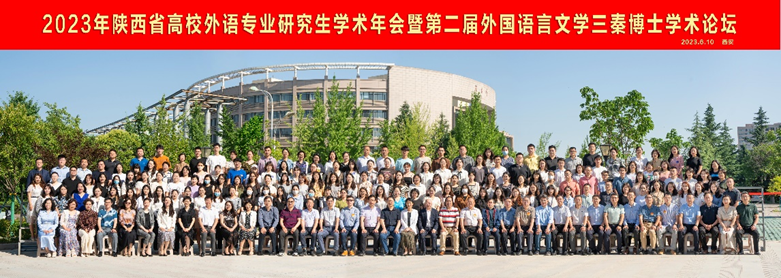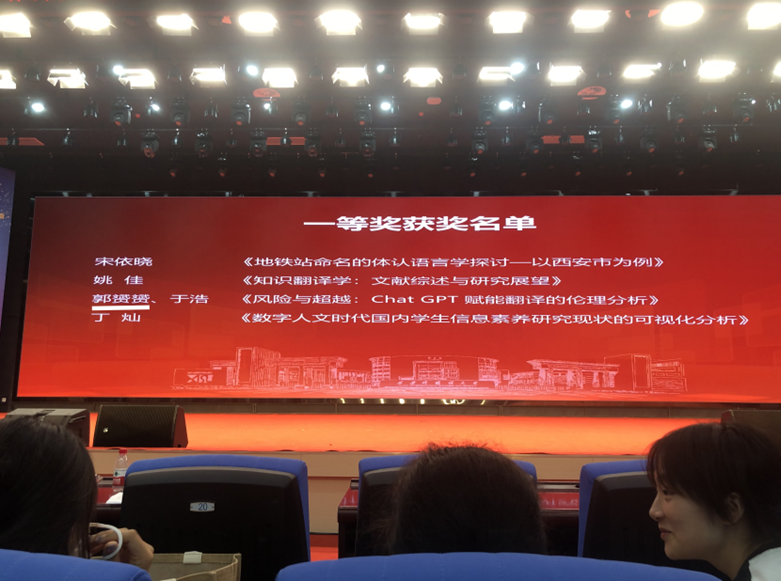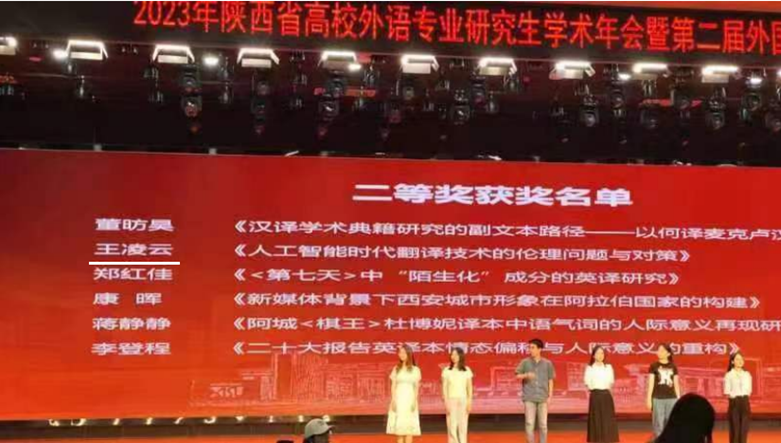On June 10th, the 2023 Annual Conference of Foreign Language Graduate Students in Shaanxi Province and the Second Qin Doctoral Academic Forum on Foreign Language and Literature, hosted by the Shaanxi Association for Degrees and Graduate Education and organized by Xi’an International Studies University and the Foreign Language Teaching Committee of the Shaanxi Association for Degrees and Graduate Education, was successfully held at the Chang’an Campus. With the theme “New Perspectives on Foreign Language Research in the Context of Great Changes: Theory, Policy, and Practice”, experts and scholars from universities in and out of the province in disciplines such as linguistics, translation studies, foreign literature, area studies, as well as leaders from related industries and over 300 representatives of graduate students majoring in foreign languages, gathered at the forum. They conducted academic exchanges on foreign language research in the context of great changes, exploring ways and methods to enhance the quality of foreign language talent training by expanding the research perspective on foreign language teaching.

The conference consisted of keynote speeches and parallel sessions. Eight renowned scholars from both inside and outside the province delivered keynote speeches. In the parallel session, 29 graduate students from the school were invited to present their papers and participate in discussions. Among them, the papers of two graduate students enrolled in 2021 from the Master of Translation and Interpreting, Guo Yunyun and Wang Lingyun, were recognized as outstanding master’s theses by the reviewers, receiving praise from the attending experts.
Guo Yunyun’s thesis, “Risk and Transcendence: the Ethical Analysis of Translation Empowered by Chat GPT”, was awarded the first prize for outstanding master’s thesis. In her work, Guo explored the application of ChatGPT in the field of translation from an ethical perspective. Starting from the combination of artificial intelligence and natural language processing and the principles and characteristics of the GPT model, she elucidated the application of ChatGPT in real-time online translation, document translation, multilingual translation, language-assisted learning and localization services. She focused on the ethical challenges in empowering translation, such as data bias and discrimination, infringement of privacy rights and intellectual property, as well as quality issues and responsibility attribution. Guo proposed solutions to address these ethical challenges, including enhancing data diversity and representativeness, strengthening privacy protection and intellectual property rights protection, and formulating industry standards and ethical guidelines. The thesis aimed to emphasize the importance of addressing ethical issues to ensure the quality, fairness, sustainability of translation services, and the potential value of ChatGPT in the field of translation.

(Guo Yunyun received the first prize for the master’s academic thesis.)
Wang Lingyun’s thesis “Ethical Issues and Countermeasures of Translation Technology in the Era of Artificial Intelligence” won the second prize for outstanding master’s thesis. The rapid development of technology has ushered humanity into the era of artificial intelligence, where translation technology continues to innovate under this backdrop, altering traditional translation modes. Ethical subjects and behaviors in translation activities have become increasingly complex, leading to a series of ethical issues. From the perspectives of technology itself, human-machine relationships, and language ecology, she conducted case analysis and text similarity analysis, and explored issues such as data security and learning biases, responsibility attribution and identity identification, and language ecology ethics brought about by the development of translation technology in the era of artificial intelligence. Additionally, she proposed targeted countermeasures for the construction of constraints on translation technology and for translation technology providers and users.

Wang Lingyun won the second prize for outstanding master’s thesis
In recent years, the school has attached great importance to creating a favorable academic atmosphere for graduate students, and vigorously supported and encouraged students to actively participate in domestic and international conferences to broaden their academic horizons and exchange research results. At the same time, this enhances the influence of the school and the discipline. In this graduate student academic annual conference, our students participated actively, won recognition from experts both inside and outside the university, showcasing the excellence of students in Northwest University.